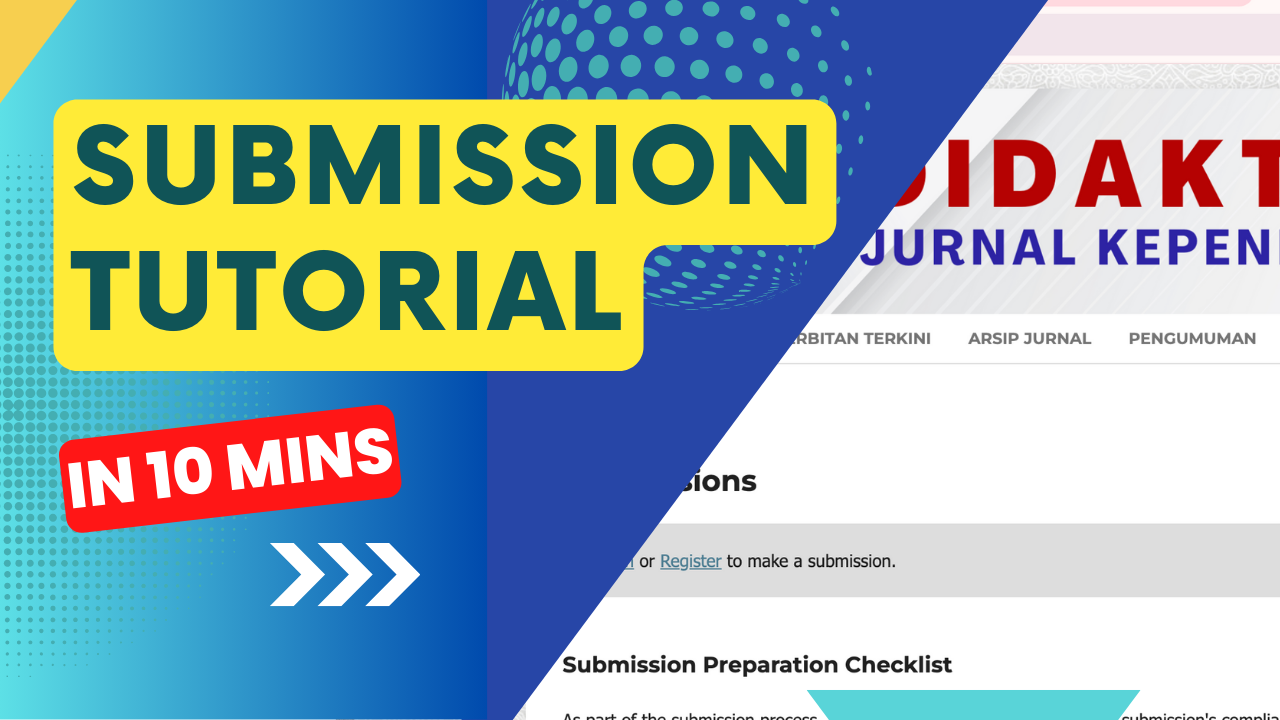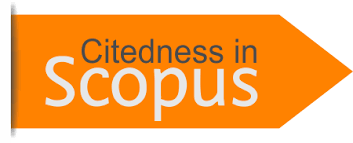The Effectiveness of Online Learning at English Education Students
Abstract
Online learning is one of the alternative learning media specially made for lecturers and students of the Universitas Muslim Indonesia in carrying out the teaching and learning process during the COVID-19 pandemic, but its effectiveness is still questionable. This is what motivated the researcher to conduct research on the effectiveness of online learning. This study aims at determining the effectiveness, advantages, and disadvantages of online learning for English Education students Faculty of Letters Universitas Muslim Indonesia during the Covid 19 pandemic. The method used in this study was a mixed, quantitative, and qualitative method. The population in this study was students of the English Education Faculty of Letters Universitas Muslim Indonesia and the research sample was 41 students. To collect data, the researcher used a questionnaire in the form of a google form and used proportional stratified sampling in determining the research subject. The results of this research lead to evidence that online learning can help English Education students Faculty of Letters Universitas Muslim Indonesia attend lectures whenever and wherever they are.
Metrics
References
Belawati, T. (2019). Pembelajaran Online. Universitas Terbuka, Tangerang Selatan.
Cisco. (2001). E-learning: Combines Communication, Education, Information, and Training. http://www.cisco.com.
Clark, R. C., & Mayer, R. E. (2008). E-Learning and the Science of Instruction. San Francisco: John Wiley & Sons, Inc.
Creswell, J. W. (2012). Research Design Pendekatan Kualitatif, Kuantitatif, dan Mixed. Yogyakarta: Pustaka Pelajar.
Dabbagh, N., & Bannan-Ritland, B. (2005). Online Learning: Concepts, Strategies, and Application.
Gay, L. R., Mills, G. E., & Airasian, P. W. (2012). Educational Research Competencies for Analysis and Applications. (10th edition).
Ghofir, Z. A. (1983). Metode Khusus Pendidikan Agama. Surabaya: Usaha Nasional.
Hopkins, J. (2020). COVID-19 and World Order the Future of Conflict, Competition, and Cooperation.
Knight, J. (2005). Guide to E-Learning in the Workplace. Retrieved April 2009, from www.guide2elearning.com
Marguerite, L. G., Spaulding, D. T., & Voegtle, K. H. (2006). Methods in Educational Research from Theory to Practice San Fransisco. Jossey Bass.
Mansyur, A. R. (2020). Education and Learning Journal. http://jurnal.fai@umi.ac.id.
Octaberlina, L. R., & Muslimin, A. I. (2020). EFL students’ perspective towards online learning barriers and alternatives using Moodle/Google classroom during COVID-19 pandemic. International Journal of Higher Education, 9(6), 1-9.
Rusman, (2012). Model-model Pembelajaran: Mengembangkan Profesionalisme Guru, RajaGrafindo Persada, Jakarta
Patton, M. Q. (2015). Qualitative research & evaluation methods: integrating theory and practice. SAGE Publications
Purbo, O. W. (2002). Bukupintar internet teknologi e-learning berbasis PHP dan MySQL.Jakarta: Penerbit PT Elex Media Komputindo, Kelompok Gramedia
Copyright (c) 2021 Rizkariani Sulaiman, Ery Ermianti

This work is licensed under a Creative Commons Attribution 4.0 International License.
Dengan mengirimkan naskah artikel, berarti penulis setuju dengan segala kebijakan yang ditetapkan oleh jurnal dan penerbit.
Penulis menyatakan bahwa:
- kebijakan ini telah diketahui dan disetujui bersama oleh semua penulis;
- naskah artikel belum dipublikasikan secara resmi sebelumnya di media ber-ISSN atau ber-ISBN yang terdaftar, kecuali dalam bentuk abstrak atau sebagai bagian dari materi kuliah, atau skripsi/tesis/disertasi yang tidak diterbitkan;
- naskah tidak sedang dalam proses editorial dan dipertimbangkan untuk publikasi di tempat lain;
- publikasi naskah ini telah disetujui oleh semua penulis, institusi afiliasi penulis, otoritas yang bertanggung jawab, dan lembaga di mana kegiatan telah dilakukan;
- naskah berisi materi yang aman dari pelanggaran hak cipta;
Perjanjian Hak Cipta dan Lisensi
- Penulis memiliki hak cipta dan hak kepemilikan lainnya yang terkait dengan artikel.
- Penulis memiliki hak dan diizinkan untuk menggunakan substansi artikel untuk karya-karya penulis berikutnya, termasuk untuk keperluan bahan/materi kuliah dan buku.
- Penulis menyerahkan hak publikasi pertama kepada jurnal dengan di bawah Lisensi Creative Commons (CC BY 4.0).
Pernyataan Lisensi CC BY 4.0
Anda diperbolehkan:
- Berbagi — menyalin dan menyebarluaskan kembali materi ini dalam bentuk atau format apapun;
- Adaptasi — menggubah, mengubah, dan membuat turunan dari materi ini untuk kepentingan apapun, termasuk kepentingan komersial.
Pemberi lisensi tidak dapat mencabut ketentuan di atas sepanjang Anda mematuhi ketentuan lisensi berikut ini.
- Atribusi — Anda harus mencantumkan nama yang sesuai, mencantumkan tautan terhadap lisensi, dan menyatakan bahwa telah ada perubahan yang dilakukan. Anda dapat melakukan hal ini dengan cara yang sesuai, namun tidak mengisyaratkan bahwa pemberi lisensi mendukung Anda atau penggunaan Anda.
- Tidak ada pembatasan tambahan — Anda tidak dapat menggunakan ketentuan hukum atau sarana kontrol teknologi yang secara hukum membatasi orang lain untuk melakukan hal-hal yang diizinkan lisensi ini.






.png)








